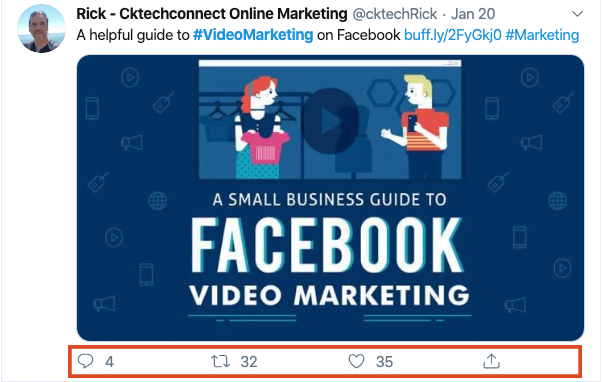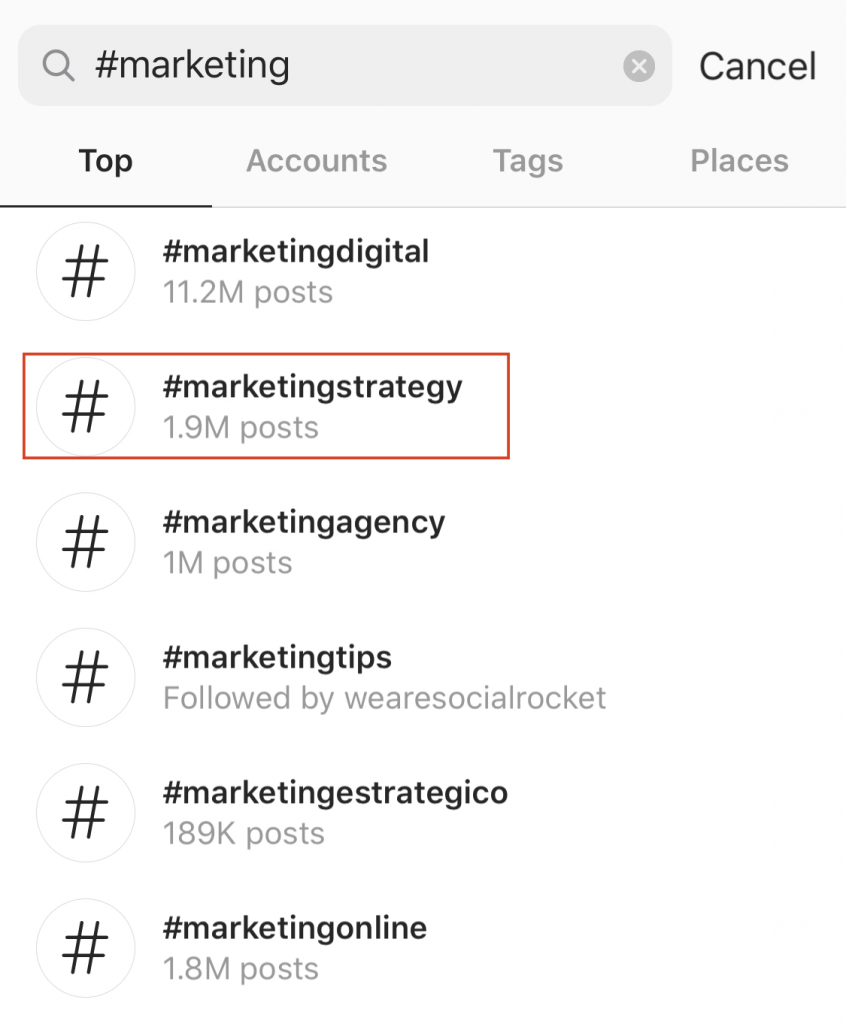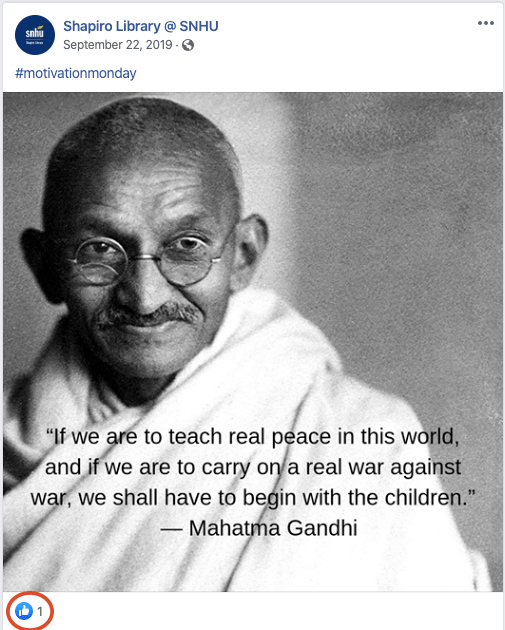
Using hashtags on social media is important for engagement and reach on your posts. For example, they can create a conversation around a specific topic, and users can search for a hashtag and add their thoughts to the conversation. However, it’s vital to know when and where to use them in order to attract the right audience that cares about what you have to offer.
In fact, studies show that published posts on Twitter and Facebook with more than two hashtags have less engagement on them than posts with one or two tags. You’ve seen hashtags on Instagram, Twitter, and even Facebook, but are they really necessary for each platform and on every post? While some platforms are better suited for them, others could go without hashtags.
Here are just a few more hashtags statistics that illuminate the power of hashtags for the various social media platforms:
- Twitter: Tweets that use more than two hashtags had a 17% drop in engagement.
- Instagram: Posts with 11+ hashtags have the highest interactions with 79.5% rise in engagement (mostly in profiles with 1,000 or fewer followers)
- Facebook: Posts with only one hashtag received the highest engagement with an average of 593 engagements per post
Read on to learn more about the methodology behind social media hashtags and how to use hashtags on Twitter, Instagram, and Facebook to grow your business leads!
Twitter Equals Hashtag Central
Twitter is a fast-moving social media platform, which is one of the big reasons why hashtags are prevalent as a means of spreading messages quickly. In 2007, the first hashtag was brought to Twitter by a user, and it has continued to be used in millions of tweets every day.
Over the years, Twitter has continued to use hashtags, and other platforms like Facebook and Instagram, have jumped on board. However, Twitter continues to be a popular place for hashtags, because they’re a great way to join a conversation, engage with like-minded users, and add context to your content.
Undoubtedly, Twitter is the most popular social media channel for hashtags. But since it can be a bit hard to use hashtags given the character limit of a tweet, try to use at least one. Many of the trending topics on Twitter are hashtags, and the topic browser is always a great place to start looking for an engaging hashtag to use. You can also search for relevant keywords from your tweet to see if there are other posts built around it or if any hashtags are associated with it.
So, how many hashtags should you use on Twitter? Twitter recommends using no more than two hashtags per tweet, and we couldn’t agree more. A tweet with three or more hashtags can be hard to read and can look like spam. Likewise, a tweet with one or two hashtags is clear and to the point – leading to more engagement like the tweet below.
Overall, It’s important to use hashtags on Twitter, because they allow you to broaden your reach and make your content more engaging by targeting searchable topics and keywords that your audience is searching.

Using Hashtags on Instagram
There is no doubt about it, Instagram is the second platform where hashtags come alive. So how do you use hashtags on Instagram most effectively? When it comes to this platform, longer hashtags work better, and the sweet spot number to use in your posts is approximately 11.
With the latest Instagram updates, you can follow your favorite hashtags so you can connect more easily with your community, follow your favorite accounts, and stay engaged with your followers. If your business or brand uses Instagram, your audience can follow your branded hashtags as well. By following these unique hashtags, you can find potential project partners, and future content to share and keep an eye on your competitors and their content.
When using hashtags on Instagram, it’s important to limit the use of high competition or popular hashtags. You may think that it’s a great idea to use a lot of popular hashtags from many existing posts that are already associated with the hashtag.
However, if there are over one million posts with the associated tag, it can be hard for your post to stand out. Your post may only show up in the hashtag feed for a few seconds, because there will be many new posts populating the feed at the same time. Instead, look for more niche hashtags that have a sizable following but that are more focused and relevant to your content.

You can also use local hashtags, as they are a great tool to use if your target audience is in your local area. For example, tags like #chicago, #seattle, and #nashville can be great to use for local recognition. If you’re a physical business that has a brick-and-mortar store, it’s important to target the potential leads in your area. The best Instagram hashtags to use are longer (between 21 and 24 characters) and can be found by browsing your local hashtags, business niche hashtags, and industry trending hashtags. Make sure you choose the ones that align most effectively with your products and services.
Should I Use Hashtags On Facebook?
We usually associate hashtags with Twitter and Instagram, but they can still be used on Facebook to help increase the visibility of your posts. If you choose to use hashtags on Facebook, we recommend that you use one or two in your post and that they’re relevant to what you’re posting.
And how can you more strategically use hashtags on Facebook? For one, you can check out the hashtags that your comptitors use to get the most engagement and test them out in your posts. For greater visibility, choose Facebook hashtags that don’t have too much usage but that are still fairly popular. We found that the best bet is to use Facebook hashtags that have usage in the 100K range.
According to Business2Community, you should use only one or two specific hashtags per update, and place them at the end of the post. Hashtags are rarely used on Facebook, but that’s not to say businesses shouldn’t use hashtags to promote an event or a campaign on the platform. But before you use them, it’s important to do your own testing, and make decisions from there given your audience’s engagement levels and other analytic significators.
Since Facebook hasn’t updated its guidelines for hashtags, marketers and brands alike have remained fairly split on whether or not to use hashtags on Facebook. Some marketing professionals advocate for the use of hashtags on Facebook, as they do make a post more searchable by categorizing content for search, just like any other platform.
Despite the benefits of hashtags for searchability, studies show that posts with hashtags did receive less engagement than posts without them. If you’re adamant about using hashtags, the sensible course of action is to use one to two hashtags. As you can see, using hashtags on Facebook is the ultimate catch-22. You can use them to give your message a greater reach, but just how effective are they?

At Idea Marketing Group, we try to avoid using hashtags on Facebook when publishing content for our clients and for our own audience. We simply don’t think it’s the right platform for the tags, and we believe they’re much better suited for other social media platforms like Twitter and Instagram.
Use Relevant & Niche Hashtags
There is nothing worse than looking at posts with hashtags that are not relevant to the content your business is promoting. If you’re talking about a new dish you have at your restaurant, think of some niche hashtags to fit with the post.
If you’re talking about a new product your business is selling, like a new pair of shoes, create hashtags based on its launch, qualities, and location. Don’t include meaningless hashtags only to have your content be seen. Remember, you want to attract the right leads to your business, so making your hashtags more descriptive, particular, and targeted is key.
It’s also important to know when to stop using hashtags, since you shouldn’t use too many hashtags in your post. The Instagram hashtag limit is currently at 30, but that doesn’t mean you should use that many. When publishing content on Instagram, it is recommended to use at least 11 hashtags, and at most, approximately 15. While on Twitter there’s no set limit on how many tags you can use, you do have a character limit that will require you to be very selective on the few hashtags that you can use.
When thinking about hashtags, it’s important to steer clear of the gimmicky or general hashtags like #love, #quotes, #monday, as they don’t do much for reach and engagement. Not only do they take up hashtag space, but they will also get lost among the millions of other posts that are published during the day.
Also, think about who will be searching for and using your hashtags. If your business targets more consumers in one industry, use niched hashtags your followers can engage with and follow to see your content. Over time, those tags can become popular with more posts and engagement associated with them.
And if you’re looking for ways to improve your social media marketing strategy, we’ve put together some very helpful resources that will help you grow your leads and stand out from the competition:
Social Media Is An Online Dating Profile for Your B2B Company
Should I Be Using Every Social Media Platform?
Does Your Company’s Social Media Need a Makeover?
Social Media Engagement: The Response is Greater Than The Post
Final Thoughts
Using social media hashtags can seem a bit confusing. Our advice is to keep experimenting with your hashtag strategy and see which changes made the most difference in impressions, engagement, and followers. To ensure that you’re not overwhelmed and can easily keep track of all your hashtag research, it is highly beneficial to create a social media hashtag calendar that is easy to reference for your niche topics, campaigns, and brand-specific messaging.
In summary, 1-2 hashtags for Twitter and Facebook are optimal for engagement, while the ideal number of hashtags for Instagram is somewhere between 11-15.
If you think your marketing strategy and business needs help promoting, we are a top web design agency in Chicago that specializes in digital marketing and custom web support. Contact us today for more information on how you can work with us and improve your marketing strategy!


